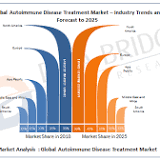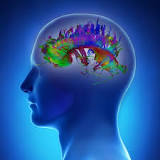What is ERP (Enterprise Resource Planning)? | Ultimatepocket


If you deal with the financial side of a business, you know how difficult it can be to get the information you need from all of the different departments. With enterprise resource planning (ERP) software, most of that information is organized into a single, centralized system, so you can easily find what you need. Keep reading to learn more about ERP and how it can streamline processes to help your business run more efficiently.
Table of contents What is ERP?Back to top
Enterprise resource planning (ERP) is a type of software that facilitates the management of different business processes, including inventory management, accounting, human resources, and order management. It helps with the day-to-day operations, so the business runs more smoothly and there is less discord between different departments. The software monitors processes in real-time, allowing users to make more informed decisions.
ERP software is mostly used by enterprise and mid-sized businesses. The large number of employees mixed with the need for visibility into the company’s finances makes ERP systems essential for continued growth. ERP organizes the processes into a single location and allows data to flow freely between the departments so everyone is working with the same information.
Also read: ERP Entering All Facets of the Economy
Top ERP products 2020Back to top
The best ERP software will differ from company to company, but this comparison chart can help you see which products have the features that are important to you.

 Which departments does ERP software impact?
Which departments does ERP software impact?
(insert jump link back to table of contents)
ERP software impacts almost every part of the business that has any hand in financials, including the sales, accounting, purchasing, and HR departments.
SalesWithin the sales department, an ERP system works with customer relationship management (CRM) software to show data on sales and keep track of where customers are in the pipeline. The ERP software provides seamless customer service, showing order status and leaving your customers with a positive impression of your company.
Also read: CRM vs ERP: What’s the Difference and Which Is Best for Your Organization?
AccountingERP software can automate accounting tasks like adding receipt information to expense reports, so your accountants can focus on areas where their expertise is needed. The system can also automatically resend invoices to clients who have a past due balance.
PurchasingERP software provides greater visibility into inventory and order management processes that the purchasing department needs to keep track of product and supplies. It can also automate the sending of order information to distribution centers, so there’s no delay or chance of data being entered incorrectly.
HRMany ERP systems contain HR modules that track job applicants, PTO, and payroll to make business growth a priority. It can automate payroll processes and pay out leftover PTO at the end of the year, so your HR team can focus on employee retention and finding the best new hires.
The benefits of ERP softwareBack to top
ERP software provides numerous benefits to enterprise and mid-sized companies looking to keep growing.
Lower operational costsWhen business processes are streamlined and a company becomes more efficient, its operational costs are reduced. ERP software aligns departments and optimizes workflows to help you make your business run more smoothly. Some tasks, like adding sales orders to the financial system, can even be automated to lower your employees’ workload.
Reduced riskERP software provides greater financial controls and better data integrity to help you make more informed decisions and lower your risk. The system also makes it easier to follow compliance guidelines with robust audit tools.
More business insightBecause ERP software provides a real-time look into the company, users get a better insight into financial performance, inventory, and other aspects of the business. With better insight, you can make informed decisions on how to best encourage business growth.
Operational consistencyWhen everyone is working off of the same data, it’s easier to align processes and create more consistency within the business. ERP organizes the data into a centralized system so that everyone can easily find and access the data they need.
Common features of ERP softwareBack to top
Many ERP systems share a variety of features to streamline business processes and make companies more efficient.
Shared knowledge baseThe main feature that ERP systems all have in common is a shared database that supports all of the functions used by several different departments in the business. Functionally, this means that employees in different business departments are working off the same information, so their decisions are better aligned. Additionally, there will be less confusion surrounding reporting because all of the information is coming from the same place. Because the dashboards are customizable, you can track the metrics that are most important to your business.
Customizable dashboardERP systems contain a customizable dashboard that provides data and insights to keep your decisions focused on growing your business. With a single, centralized system, it’s easy for every department to get the information they need when they need it, and the executives can be confident that the data is sound.
IntegrationsWhile many businesses are happy with their ERP just as it comes, some may want a little more customization. Most ERP software provides integration opportunities, so you can add features that you may need or want. Additionally, most ERP systems will integrate with CRM and accounting software to optimize operations that use multiple systems.
Also read: What Are the Key ERP System Modules?
Choosing the best ERP software for your businessBack to top
Finding the best ERP software for your business depends largely on the types of features you need. If you need a customizable option, an ERP system with lots of available integrations is going to work best for you. If budget is your main concern, however, you may need to stick with something that’s ready to go out of the box. Determining your priorities and the data you need to track will help you in your search.


 United Kingdom
United Kingdom Argentina
Argentina  Australia
Australia  Austria
Austria  Brazil
Brazil  Canada
Canada  Germany
Germany  Ireland
Ireland  Italy
Italy  Malaysia
Malaysia  Mexico
Mexico  New Zealand
New Zealand  Poland
Poland  South Africa
South Africa  United States
United States 

















